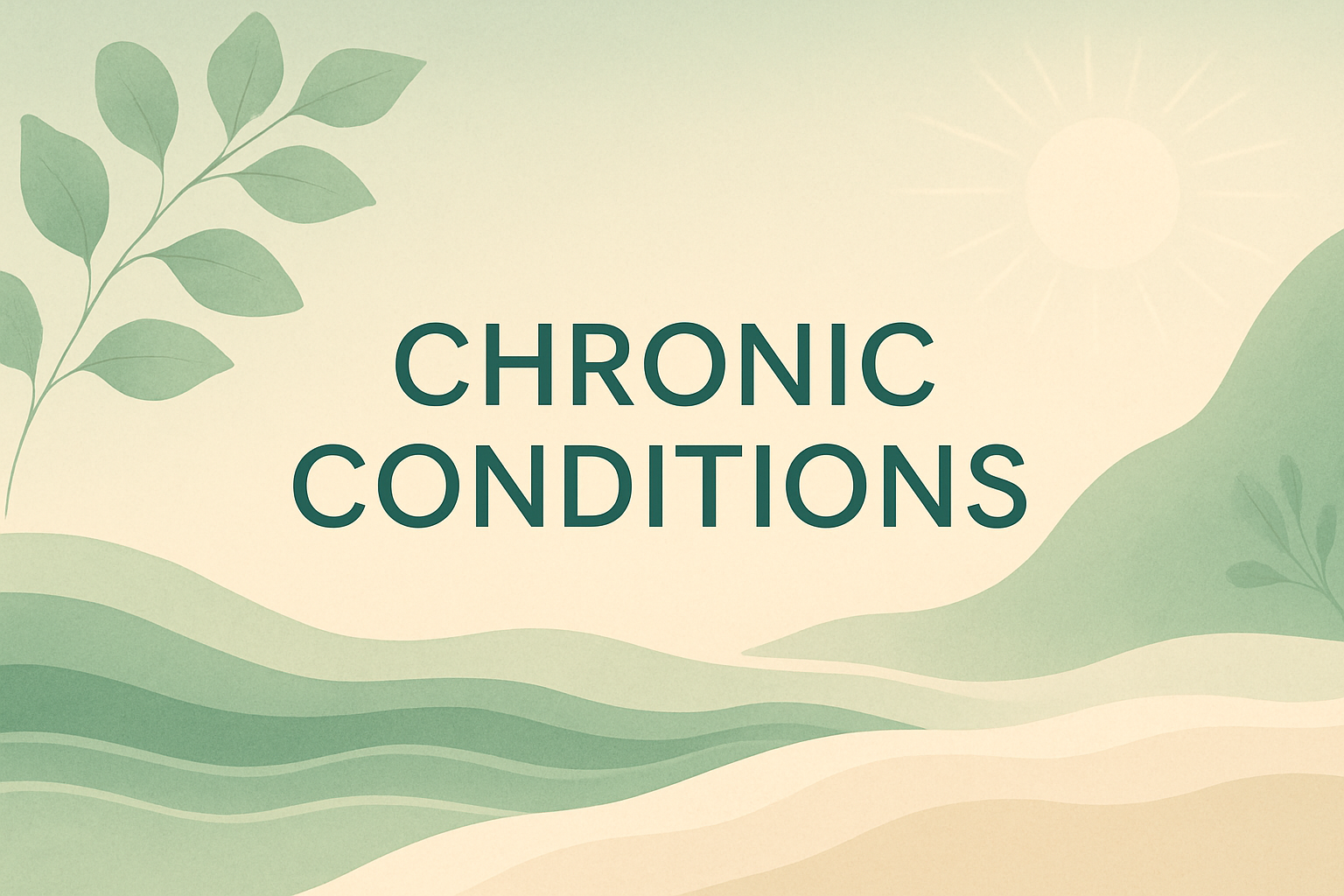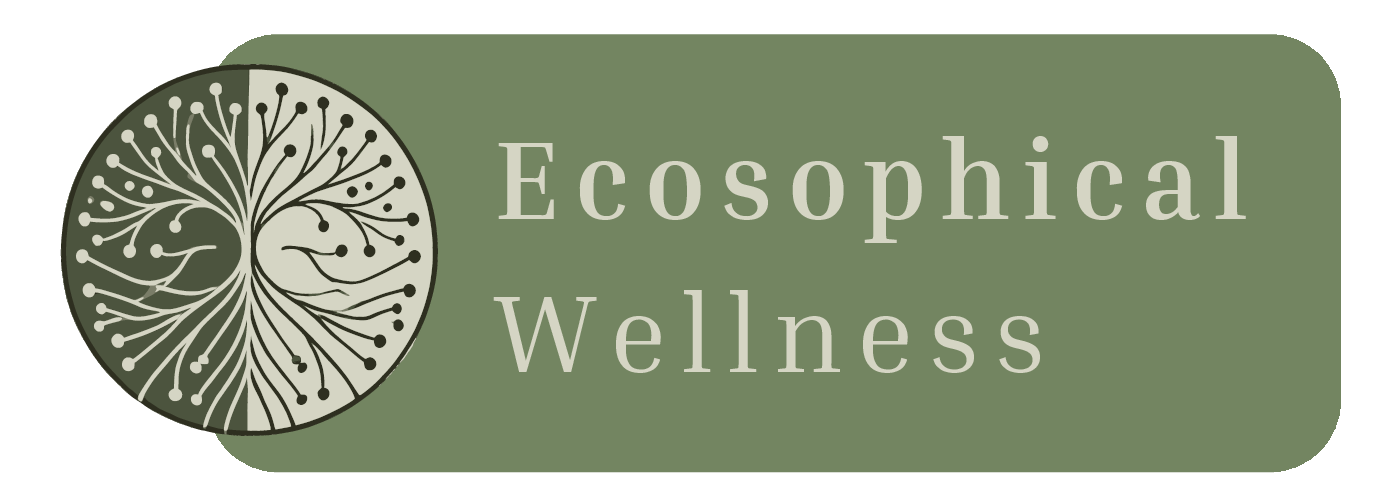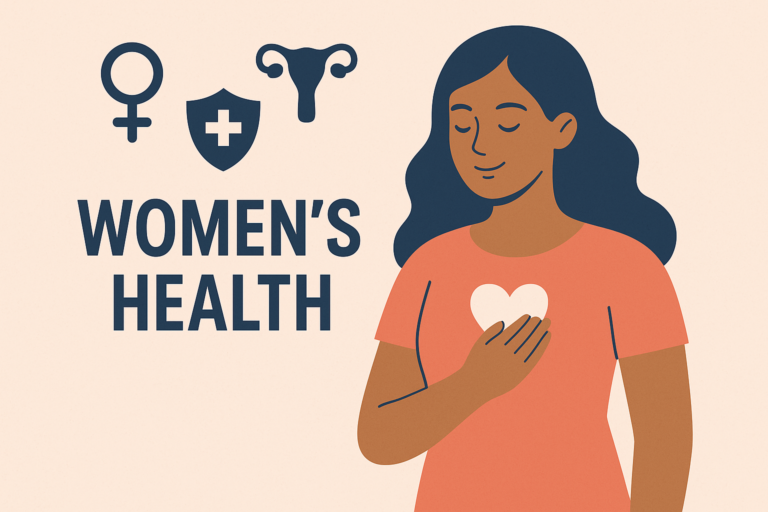Book Appointment Now

How Chronic Conditions Really Begin — A Root-Cause, Whole-Person Approach
Let’s talk about something that affects millions — yet still feels confusing and overwhelming: chronic health conditions.
Things like weight that won’t budge, blood sugar that keeps climbing, blood pressure that’s “just a little high,” or thyroid levels that are off — but “not too bad.”
These conditions don’t usually show up overnight. They build slowly, quietly — often for years — before the body finally says, “I can’t keep compensating anymore.”
What Is a Chronic Condition, Really?
“Chronic” doesn’t mean forever. It simply means long-lasting.
It’s the opposite of an acute issue — like a cold, an injury, or a stomach bug that comes and goes.
Chronic health conditions develop gradually, often affect multiple systems in the body, and persist over time.
They’re your body’s way of saying:
“Something’s been out of balance for a while — and now I need your attention.”
They’re not random. And they’re not just about symptoms.
It Doesn’t Start With the Diagnosis
By the time someone hears, “You have type 2 diabetes,” “Your thyroid’s underactive,” or “Your blood pressure’s high,” the story has already been unfolding behind the scenes — sometimes for years.
Often, that story includes:
- Skipping meals or eating whatever’s quick and processed
- Sleeping late, waking tired, or not sleeping much at all
- Feeling constantly rushed, anxious, or burnt out
- Ignoring subtle signs like bloating, fatigue, or mood swings
These everyday stressors don’t always feel dramatic. But over time, they shift how your body functions — especially when there’s no space to rest, digest, and repair.
Eventually:
- Metabolism slows
- Hormones get thrown off
- Inflammation builds
- The nervous system gets stuck in fight-or-flight
And the symptoms we brush off — sugar cravings, brain fog, stubborn weight — become part of a deeper imbalance.
It’s Not Just One Thing
We’re often told that chronic conditions have a single cause — too much sugar, not enough exercise, or bad genes.
But the truth is more layered.
Yes, food and movement matter. But so do:
- Your stress response
- Your gut and microbiome
- Your circadian rhythm and sleep
- Whether your body feels emotionally safe
The body doesn’t compartmentalize. It sees everything as connected.
That’s why someone with thyroid issues may also feel anxious or cold.
Why high blood pressure might come with poor sleep.
Why fatigue isn’t just about iron — it could involve adrenal burnout, poor digestion, or emotional depletion.
Early Signs of Chronic Illness Are Easy to Miss
One of the most difficult parts about chronic disease is how quietly it begins.
That’s why so many people say, “I don’t know how it got this bad — I was fine a few years ago.”
The truth? You probably weren’t fine. You were coping. Adapting.
Your body was whispering before it started shouting.
Whispers like:
- Occasional bloating
- Skipped periods
- Waking up tired
- Mild anxiety or irritability
But because we’ve been taught to ignore these until a lab report says something is “wrong,” we miss them. Or we normalize them.
“I’m just tired because I’m busy.”
“Everyone’s stressed these days.”
“It’s just hormones.”
Until one day, the symptoms are too loud to ignore.
Managing Symptoms Isn’t the Same as Understanding Why
Most people with chronic illness are given tools to manage symptoms — medication for blood sugar, supplements for thyroid, pills for sleep, etc.
And sometimes, these are necessary and life-saving.
But they don’t always answer the deeper question:
“Why did this start in the first place?”
Without exploring that root cause, we risk staying stuck — managing the surface while the imbalance continues underneath.
Understanding “why” doesn’t mean blaming yourself.
It means recognizing the long-term patterns that shaped your health — so you can shift them, gently and gradually.
Chronic Doesn’t Mean Hopeless
Here’s the most important truth:
Chronic doesn’t mean permanent.
The body is always healing. Even in small ways. Even under stress. Even after years of wear and tear.
Healing isn’t about fighting the body. It’s about listening to it.
It often begins with small things:
- Better rest
- More nourishment
- Fewer stressors
- Gentle movement
- Deeper emotional safety
Sometimes the most powerful shift is just slowing down enough to notice what your body has been trying to say all along.
Final Thought
Chronic conditions aren’t your fault — they’re feedback.
And when you begin to understand that feedback, you can respond not with fear, but with compassion, clarity, and patience.
Healing isn’t about fixing a broken body.
It’s about creating the right conditions for balance to return — naturally, and in time.
At Ecosophical Wellness, we support people living with chronic conditions not just by addressing symptoms — but by helping them rediscover balance.
If you’re curious about a more natural, whole-person approach to healing, explore our philosophy or book a clarity call to begin your journey.

